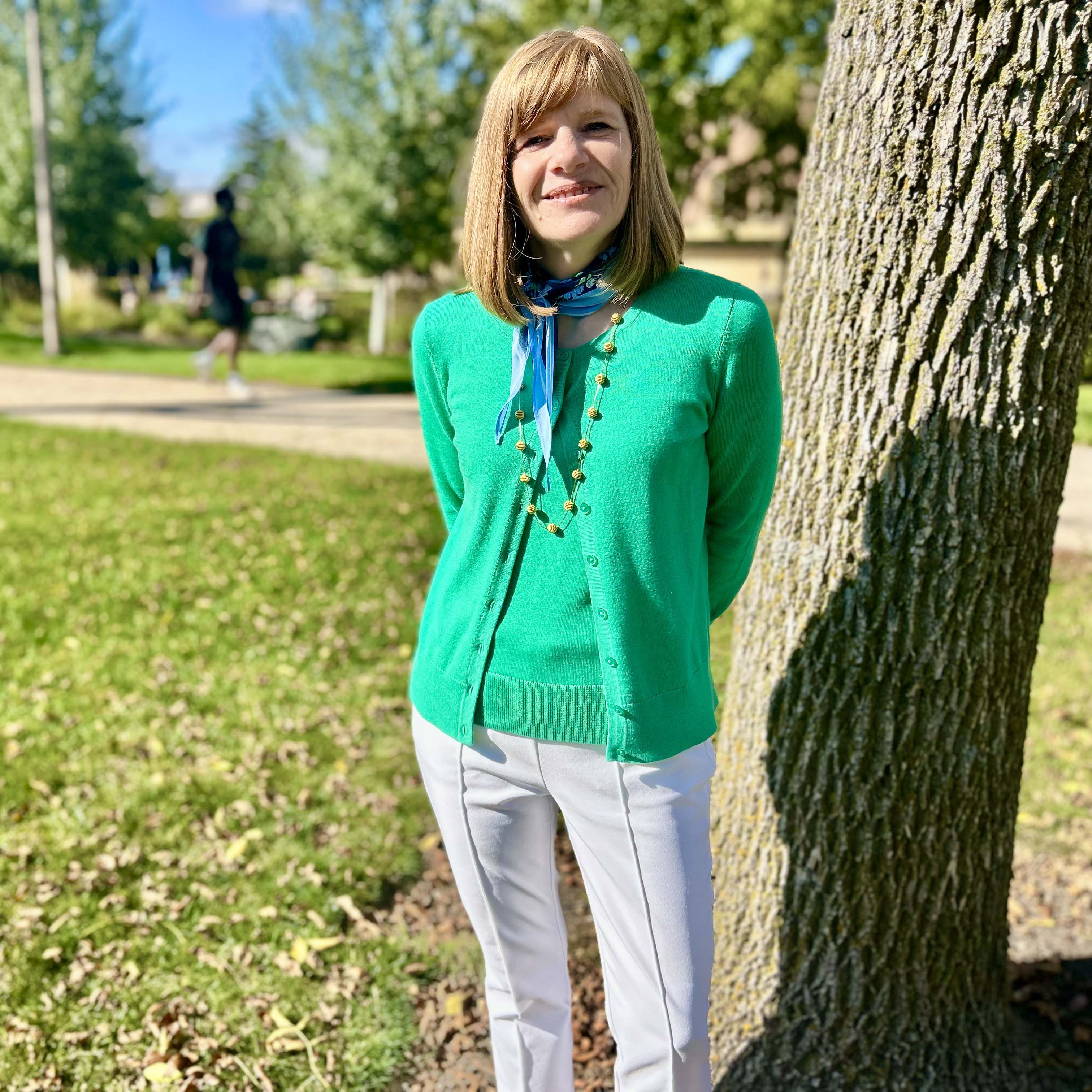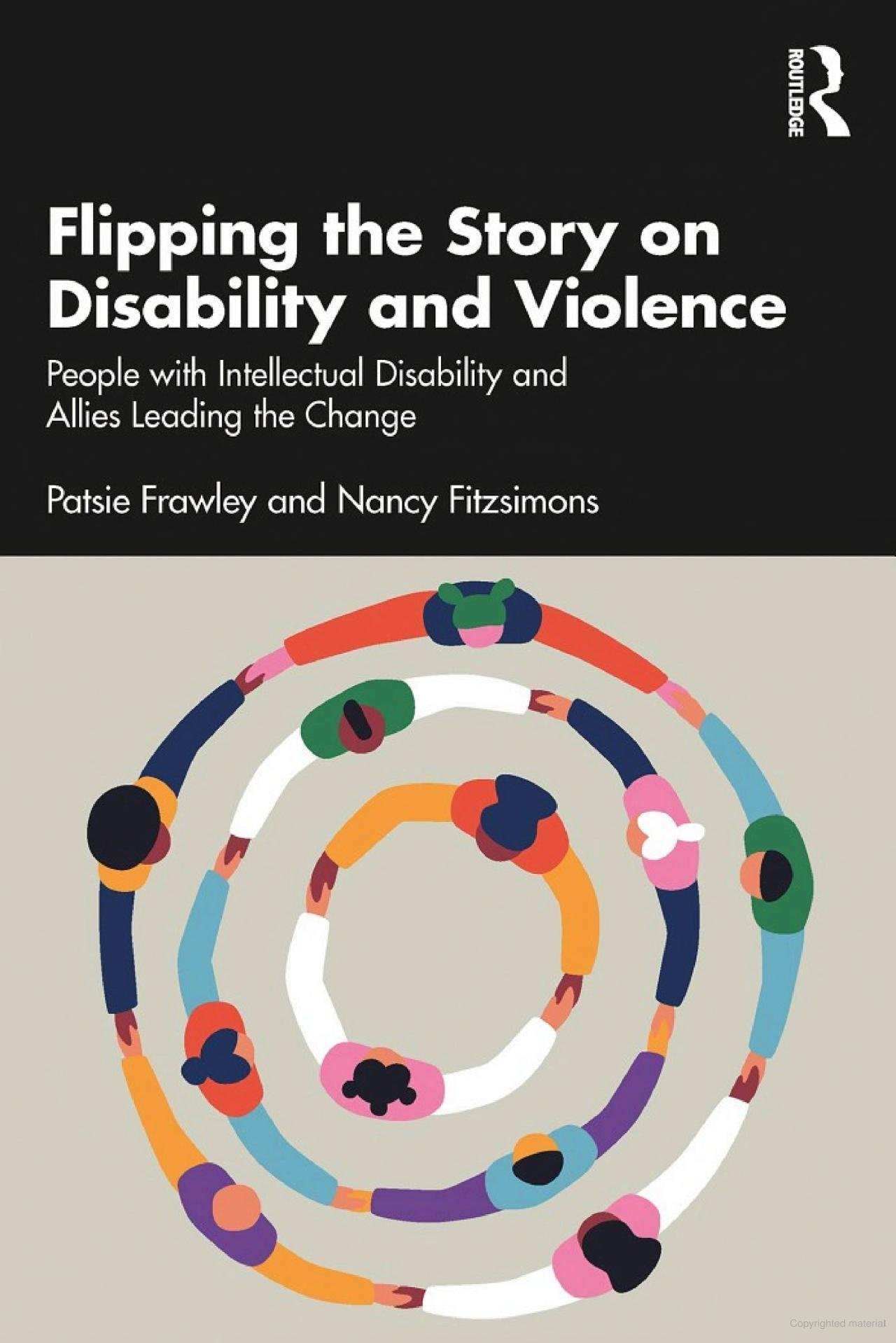Flipping the Script on Disability and Violence
October 01, 2025
Published In: Today Magazine
By Joe Tougas '86
A new book co-authored by Minnesota State University social work professor Nancy Fitzsimons is challenging long-held assumptions about how society protects people with intellectual and developmental disabilities from violence—and offering a new path forward.

In Flipping the Story on Disability and Violence: People with an Intellectual Disability and Allies Leading the Change (Routledge), Fitzsimons and Australian researcher Patsie Frawley spotlight programs around the world that are shifting the focus from protection to empowerment. Their central message: real safety comes not from shielding people with disabilities, but from including them as leaders, decision-makers, and valued members of their communities.
“Our systems are predicated around a protection model,” Fitzsimons said. “But if we could protect our way out of it, we wouldn't have the problem we have, right? We wouldn't have people with intellectual and developmental disabilities in the United States experiencing sexual violence at seven times the rate of people without disabilities.”
The book argues that well-intentioned protective policies often isolate people with disabilities, leaving them more vulnerable. Instead, Fitzsimons and Frawley profile individuals and organizations that are actively involving people with disabilities in shaping laws, policies, and community practices.
One example is Minnesota’s long-running Partners in Policy Making program, which brings together adults with disabilities and parents of children with disabilities to learn how public policy is made—and how to influence it. “There is power in adults with the lived experience of disability and parents of children with disabilities learning together,” Fitzsimons said.
Throughout the book, people with disabilities are not portrayed as passive recipients of care, but as self-advocates and leaders. “No matter what level we're talking about and no matter what kind of work we're proposing, people with disabilities are profiled as leaders and lived experience experts who are actually doing the work,” Fitzsimons said.

While the book is suitable for academic settings, Fitzsimons says it’s written for a broader audience: victim advocates, disability rights organizations, parents, and anyone working to prevent violence in their communities. “We’re telling other people’s stories about the work they’re doing, and we want to make sure we’ve honored their work well,” she said.
Fitzsimons, a St. Paul native and first-generation college graduate, has spent her career working to improve the lives of people with disabilities. Now in her 25th year teaching at MSU, she’s more focused than ever on amplifying the voices of those doing the work on the ground.
“To be really honest, I do not care what academics think,” she said. “I really care about the self-advocates doing this work, the people with and without disabilities who are working on the front lines, people doing the advocacy work, people who are the allies, people doing violence prevention work in their communities. People who are doing work changing laws at the state capitols. That’s who I care about: Are we honoring the work?”
From IO to AI
From IO to AI How Two MSU Alumni Are Humanizing AI in the Workplace By Joe Tougas ’86
Building Skills, Confidence ... and a House
Building Skills, Confidence ... and a House. Construction Management Club illuminates the field for girls. BY JOE TOUGAS '86
Back to School
They met at a movie on campus. Nearly 60 years later, they had a return engagement. By Joe Tougas ‘86.
